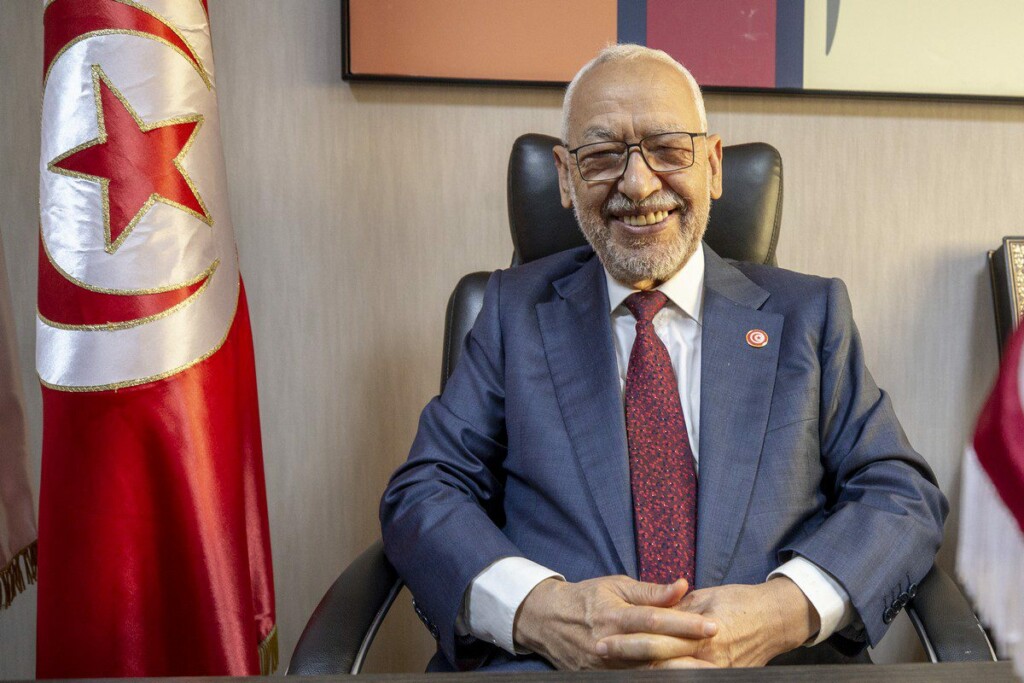The African Court on Human and People’s Rights has ordered the Tunisian government to “eliminate all barriers” to allow detainees to “communicate with lawyers and doctors of their choice”, a report said on September 1. This came after a case was filed in May 2023 on behalf of four political detainees including former Speaker of the Tunisian Parliament Rached Ghannouchi, former Secretary General of the Tayyar Party Ghazi Chaouachi, former Justice Minister Noureddine Bhiri and former public prosecutor Bechir Akremi.
Though the court has not ordered the men’s release, it has ordered Tunisia to “take all measures to eliminate all barriers that prevent the four detainees, and their families, to have access to and communicate with lawyers and doctors of their choice”.
They have also ordered the Tunisian government to inform the detainees, their families and lawyers of the reasons for their detention, specifically to provide them with “adequate information and facts relating to the legal and factual basis for the detention”. The Tunisian Government has 15 days to implement these measures and respond.
413 Yemeni children died from Measles
At least 413 children died from the deadly measles disease in war-torn Yemen in seven months, the World Health Organisation (WHO) said on August 31. “As of July 31 this year, the number of suspected cases of measles and rubella in Yemen has reached almost 34,300 cases and 413 deaths, compared to 27,000 cases and 220 associated deaths in 2022,” the WHO said in a statement.
The outbreak of the deadly diseases comes amid dire conditions in Yemen, including “the economic decline and low incomes, displacement and overcrowded living conditions in camps, coupled with an overwhelmed health system, low immunisation rates,” the UN agency said.
The WHO said it continues to work with the local health authorities and international partners “to increase support for routine vaccination interventions.”
Bahrain political prisoners reject government offer
Political prisoners on hunger strike in Bahrain have rebuffed government concessions and will extend their protest, raising the stakes in the biggest showdown for years between dissidents and the Saudi-backed ruling family, a report said on August 31. The Sunni Muslim Al Khalifa dynasty has largely kept a lid on dissent since Riyadh sent troops to help it crush an “Arab Spring” uprising in 2011 by the mostly Shia opposition, and the hunger strike is the biggest organised protest in years.
Neighbouring Sunni Saudi Arabia has historically been keenly sensitive to political upheaval in Bahrain where its Al Khalifa allies rule over a Shia majority and where it has previously accused long-time Shia rival, Iran, of stirring unrest.
Rights groups and families of detainees say some 800 prisoners are on hunger strike at the capital’s Jau Prison over what they call harsh conditions there, and they said the prisoners had rejected government concessions.
Nearly 1M children in Mali face acute malnutrition
Nearly 1 million children in Mali face acute malnutrition by the end of the year without life-saving humanitarian aid as 200,000 face the dire prospect of death by starvation, the UN warned on September 1. About one in four people in Mali, which has about 95% Muslim population, are suffering from moderate or acute food insecurity as about 2,500 people, including many children, in the conflict-riven region of Menaka face a first-of-its-kind famine, the UN said following a visit to the country by senior officials from UNICEF and the United Nations World Food Program (WFP).
“Mali is going through a complex humanitarian crisis and needs urgent support to avert a disaster for children, who are again paying the highest price for a crisis not of their making,” Ted Chaiban, UNICEF’s senior official for humanitarian action, said in a statement.
Taliban reject rights group’s concerns over security cameras in Kabul
The Afghan Taliban on September 1 rejected Amnesty International’s concerns over the installation of cameras in the capital, Kabul, and other areas, saying these cameras are installed to maintain security, said a report.
In a statement, Afghanistan’s Foreign Ministry called the rights group’s concerns “baseless”, rejecting claims of violating human rights, entering the private space and imposing restrictions.
“When the US and NATO were carrying out surveillance operations by placing balloons in all zones of the country, including Kabul, for their own purposes and intelligence information, then why didn’t the defenders of human rights and privacy raise their voice,” said Mufti Abdul Mateen Qani, a spokesman for the Ministry.
“Everyone knows, that installing security cameras is a security necessity not only in Afghanistan but in every city and capital of all the countries around the world. “The Islamic Emirate is also committed to maintaining security, protecting all the rights of the people, and taking into account all Sharia principles,” Qani added.


